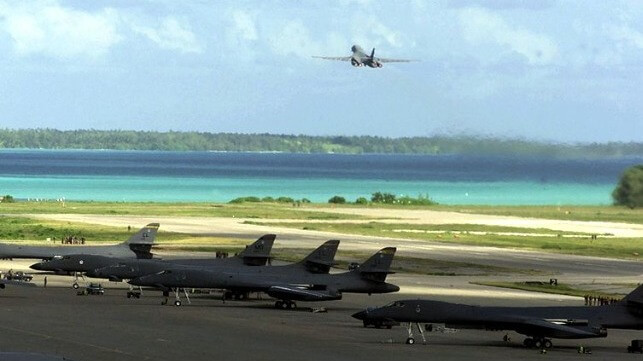UK and Mauritius Resume Talks Over Diego Garcia, a Key U.S. Naval Base

The new British government has resumed talks with Mauritius on the future of Diego Garcia in the Indian Ocean, the previous government having suspended the negotiations. The United Kingdom has owned Diego Garcia within the Chagos Archipelago since 1814, and until recently it has rebuffed attempts by Mauritius to assert that the archipelago should have been transferred when the island nation gained independence from Britain in 1968.
The resumption of talks comes at a delicate time. The United Kingdom has leased the island of Diego Garcia to the United States for its exclusive use as a military base since 1966. The lease to the United States runs until 2036, with a renewal option thereafter, and there is no clause for early termination.
The United States maintains a major airfield on Diego Garcia, as well as a naval base, which can host submarines and all classes of surface vessels. The protected lagoon is used as an anchorage for ships of Maritime Prepositioning Ships Squadron Two, a strategic logistic reserve kept afloat and ready for use by U.S. Marines and the U.S. Army in the Middle East region. When needed, the airfield becomes a key base for long-range strike and reconnaissance aircraft, and it was used extensively during the wars in Iraq and Afghanistan. With the US Navy carriers USS Abraham Lincoln and USS Theodore Roosevelt both positioned off Iran - an ominous pairing - the value of Diego Garcia as a strategic backstop has probably never been more apparent.
Generally dismissed as being in the middle of nowhere, Diego Garcia also now finds itself in the increasingly busy sea-lane between the Straits of Malacca and the Cape of Good Hope, which now carries extra traffic previously served by the Suez Canal.
In these circumstances, the United States is likely to push back on a number of solutions to the future of Diego Garcia now being discussed between the United Kingdom and Mauritius, which variously threaten the secure operations of the base. A particular concern arises from Mauritius’ warming relationship with China.
Relations between the United States and the United Kingdom in the defence and security field have been under some strain in recent months. The new Labour government talked up a possible increase in defense spending during the recent UK election, but once in power, cuts in defense programs appear more likely. The withdrawal of a small number of arms export licences to Israel was announced in a manner that managed to upset both Israel and the United States, without placating the pro-Palestinian lobby it sought to appease. Tensions persist over arms exports and permissions granted to Ukraine over the use of long-range weapons. Diego Garcia could be another contentious issue on the agenda of talks between President Biden and Prime Minister Starmer in Washington next week, given America's investment in the atoll's future.
Jonathan Campbell-James has a degree in Modern Middle Eastern Studies from Durham University and served for 32 years in the British Army’s Intelligence Corps. His career focused on the Gulf and culminated as Deputy C2 Intelligence in HQ Multinational Forces-Iraq in Baghdad. He was then the Regional Head of Security and Political Risk covering the MENA Region for a global bank, based in Dubai and Riyadh. He also has written for the Washington Institute for Near East Policy and for Gulf States Newsletter. He is a graduate of the Army Staff College, the Defence School of Languages and the NATO Defence College Rome.
The opinions expressed herein are the author's and not necessarily those of The Maritime Executive.
No comments:
Post a Comment